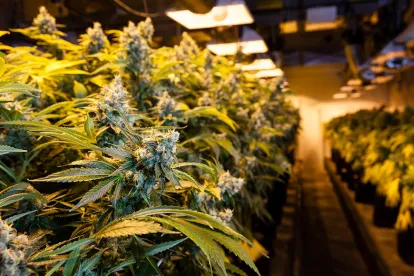While President Biden recently announced a shift in how cannabis legalization may move forward at the federal level, voters in five states (Arkansas, Maryland, Missouri, North Dakota, and South Dakota) went to the polls Tuesday with recreational use cannabis legalization on the ballot. Legalization efforts failed in Arkansas, North Dakota, and South Dakota, while Maryland and Missouri both voted to legalize adult recreational use cannabis. Twenty-one states have now legalized adult recreational use cannabis.
Let’s take a closer look the legalization efforts in these five states:
Maryland
Maryland’s General Assembly previously legalized medicinal use cannabis in 2014. Question 4, Maryland’s proposed constitutional amendment legalizing cannabis for adults 21 and over, passed with 65% of the vote. Question 4 was placed on the ballot by an April 2022 vote of Maryland’s General Assembly. The amendment instructs the Maryland General Assembly to “provide for the use, distribution, possession, regulation, and taxation of cannabis within the state.” The Maryland General Assembly already passed companion legislation that was contingent upon voters’ approval of the amendment referendum and provides additional clarity on decriminalization and how the amendment would be implemented. Legalization will take effect on July 1, 2023.
Missouri
Missouri voters had previously voted to legalize medicinal cannabis in 2018. By passing Amendment 3 with 53% of the vote, Missourians amended that state’s constitution to allow adults to purchase up to 3 ounces of cannabis and home cultivate a limited number of plants for their own personal use. The amendment levies a 6% state tax on retails sales and allows local governments to assess local sales taxes of up to 3%. Whereas Maryland’s amendment language is limited and directs the legislature to establish the structure and regulations, Missouri’s amendment sets out detailed regulations for adult use recreational cannabis. Critics, including some pro-legalization reformers, argue that the amendment unduly limits competition in the cannabis market and believe the detailed constitutional language will make it more difficult for legislators to adjust regulations as needed. Missouri’s amendment also specifically addresses looming federal legalization and interstate commerce issues by asserting that all cannabis sold in Missouri must be cultivated in Missouri and only Missouri licensees will be able to legally sell cannabis in Missouri. The amendment also allows for the expungement of non-violent marijuana charges.
Arkansas
In 2016, Arkansas voters approved a medical cannabis legalization. On Tuesday, voters defeated Arkansas Issue 4, a proposal to legalize recreational cannabis and enact a 10% tax on retail sales. The Arkansas proposal was opposed by some cannabis legalization advocates because it was deemed too restrictive. Advocates have already indicated efforts to include another legalization proposal on the ballot in 2024.
North Dakota
North Dakota legalized medicinal cannabis in 2016, but a 2018 recreational cannabis ballot initiative failed. On Tuesday, voters again defeated recreational use legalization efforts. North Dakota’s Measure 2 would have legalized simple possession of cannabis and/or cannabis products. It did not provide detailed regulations on the production and sale of cannabis or implement new taxes. Likewise, the initiative did not provide for expungement of prior marijuana-related convictions.
South Dakota
In 2020, 54% of South Dakota voters supported a constitutional amendment that legalized recreational marijuana. However, in 2021, the South Dakota Supreme Court cited technical violations in nullifying the 2020 constitutional amendment. South Dakota did legalize medicinal cannabis in 2020. In Tuesday’s vote, 53% of South Dakota voters opposed the Initiated Measure 27 which would have legalized the possession and use of cannabis by adults 21 and older.
While uncertainty remains around federal legalization, efforts at the state level continue to move the needle on recreational cannabis legalization. Recreational cannabis has now been legalized in twenty-one states and additional legalization initiatives will likely find their way onto ballots in 2024.




 />i
/>i

